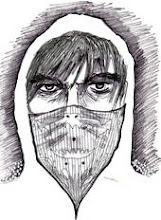I found Barker's chapter 11 of "Digital media Culture" interesting because I feel my generation, especially growing up as a teenager, is the age of cyber-evolution. I found the section about "gaming and identity" the most fascinating, because I too used to be one of the millions and millions of online gamers, playing games such as the SIMS and the ever popular World of Warcraft (WOW in the cyber dialect), games where players in reality, could transform and create new personas of themselves, and pretend to have a different identity, without the boundaries of class, race, gender and location in the global scale. As a child, the games did serve as an escape from some of the limitations and fears of reality, because my character, most of the time was about 7 feet tall, fully ripped, and usually was pretty good at killing things, giving me a cyber-constructed confidence both in the gaming world and outside. I think it's also kind of funny that Turkle points out, many gamers in real life, often don't even create characters that resemble themselves.
Women can create male avatars, and experiment, through chatting, the advantages of a masculine ego and confidence, and in contrast, a male can choose to be created as a female character, allowing themselves to be more "assertive" and even experiment with reactions from other gamers that may "believe" you are actually a female in real life, sitting behind a keyboard (which is actually pretty common nowadays in the online gaming industry). I for one, never crossed-dressed online, because I was a fan of the "race" manipulation as a teen. Keep in mind, I am a caucasion male, who grew up in a 5% white population city, I found it fascinating as a kid, talking as if I were a black male from the Bay Area, or a Latino from New York. I would screw with people in my "make believe", online voice, by using slang and stereotypes just to get different reactions. I don't really think that the cyberspace gaming community is exactly beneficial to the gamers in reality, but it does serve as an escape, or portal to re-evaluate one's identity. I wasted about two years of my teenage years, addicted to the trend, and didn't really achieve anything but an excuse to sit in front of my computer for hours on end. It was truly an escape from the tremendous boredom and distance I felt as a kid, trying to make friends in a city that declared me a minority. I guess this really poses a question about the current trends in the online gaming industry. With the games getting more detailed and advanced in forms of cyber-sex, cyber-violence, cyber-hangouts and malls, and even cyber-gambling, recruiting consumers in now the billions across the globe, is our society as a whole confused/bored with our identity or are we just looking for an escape?
Subscribe to:
Post Comments (Atom)

No comments:
Post a Comment